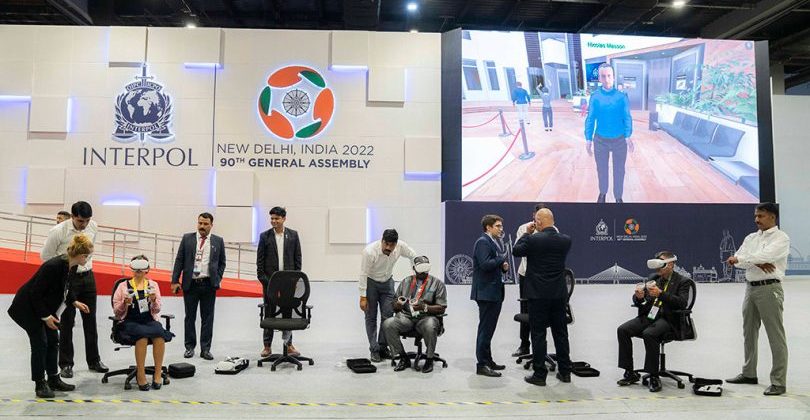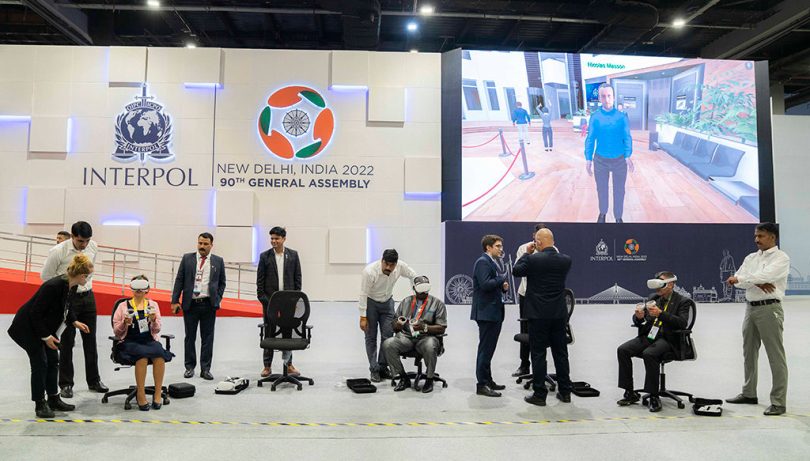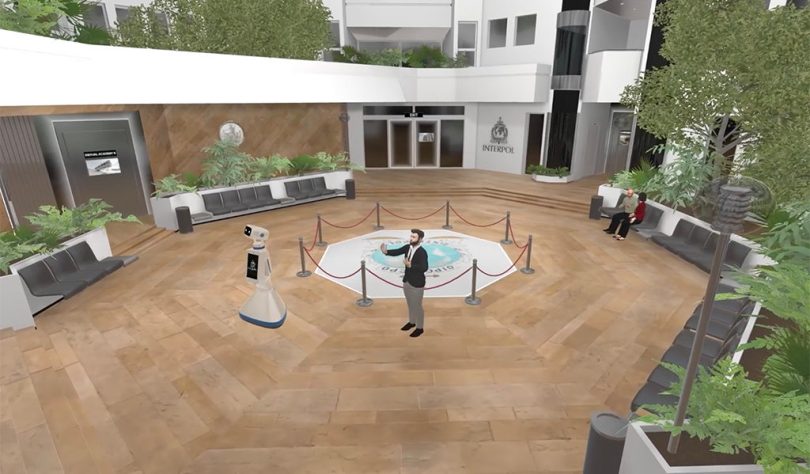Registered users can meet up with officers online, take immersive training courses, and more.
We’ve seen VR technology used by law enforcement in a variety of unique and interesting ways, from de-escalation education to nonlethal weapons training. Now even the International Criminal Police Organization (INTERPOL) is taking advantage of immersive technology.
Announced during the 90th INTERPOL General Assembly in New Delhi, the INTERPOL Metaverse is a “global police metaverse” that allows registered users to connect with officers around the world in a virtual recreation of the INTERPOL General Secretariat headquarters. Visitors can also expand their knowledge by attending immersive training courses that cover a variety of policing topics, including forensic investigation.
“For many, the Metaverse seems to herald an abstract future, but the issues it raises are those that have always motivated INTERPOL – supporting our member countries to fight crime and making the world, virtual or not, safer for those who inhabit it,” said INTERPOL Secretary General Jürgen Stock in an official release. “We may be entering a new world, but our commitment remains the same.”
INTERPOL put its global police metaverse to the test during a live demonstration in which a group students underwent a training course led by experts from the INTERPOL Capacity Building and Training Directorate. Following a presentation on travel document verification and passenger screening, students were tasked with manning a virtual control point at a simulation airport.
“The Metaverse has the potential to transform every aspect of our daily lives with enormous implications for law enforcement,” added Mr Oberoi, INTERPOL’s Executive Director of Technology and Innovation. “But in order for police to understand the Metaverse, we need to experience it.”
According to The World Economic Forum, the metaverse landscape in its current form is suseptible to all manner of threats, from social engineering scams and violent extremism to rampant misinformation.
“By identifying these risks from the outset, we can work with stakeholders to shape the necessary governance frameworks and cut off future criminal markets before they are fully formed,” said Madan Oberoi, INTERPOL’s Executive Director of Technology and Innovation. “Only by having these conversations now can we build an effective response.”
For more information check out the INTERPOL’s full report here.
Image Credit: INTERPOL
This article was originally published on vrscout.com



